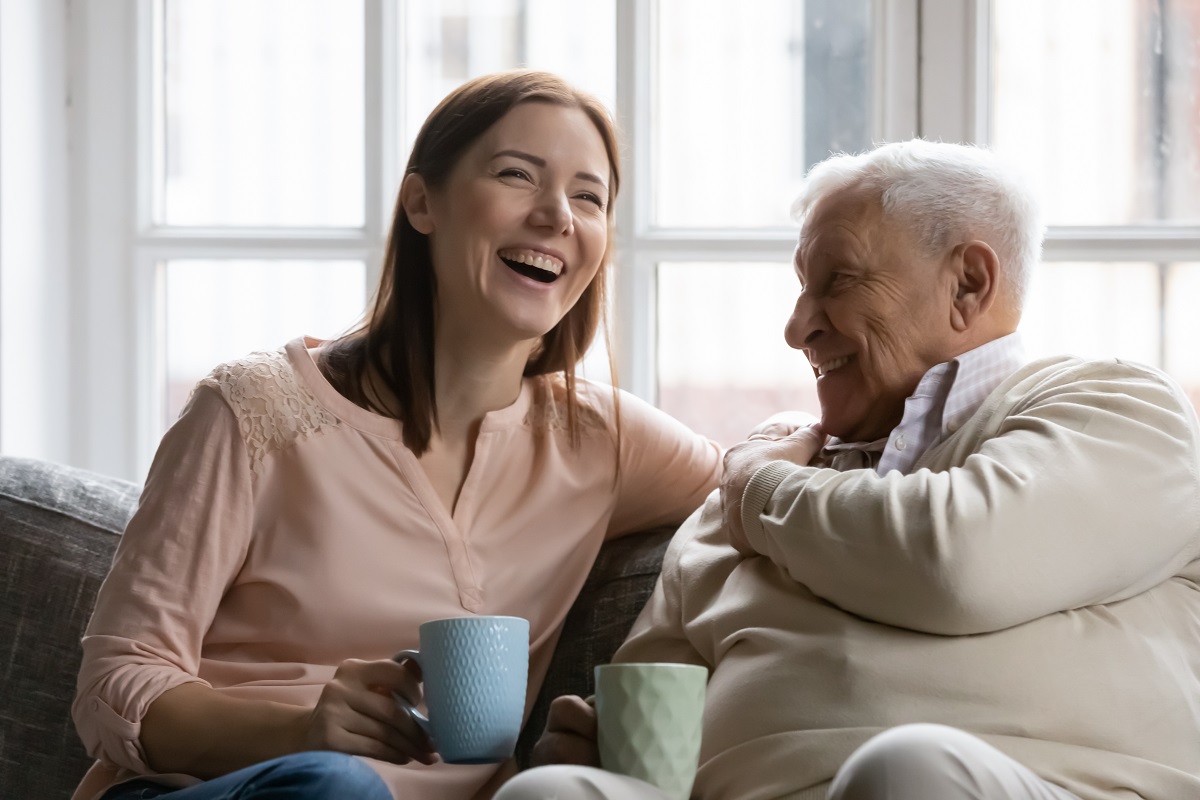Summer safety tips for people with dementia

Everybody loves the sunshine and pleasant weather definitely has its advantages when you’re caring for a person with dementia. Sitting in the garden, eating an ice cream or taking a stroll in the park all feel far more enjoyable when the weather starts warming up.However, for the elderly, and particularly those with dementia, summer can throw up a range of challenges, particularly if they live on their own. Megan Cruise, an advisor from the Alzheimer’s Society, explains why people with dementia can be in danger: ‘A heatwave can lead to a vicious cycle. People with dementia may forget to drink enough fluids and wear suitable clothing. Dehydration and high body temperatures can lead to greater confusion.‘
The 4 step summer safety plan for people with dementia
1. Stay out of the midday heatThe hottest time is between 11am to 3pm so encourage peo-ple to come inside or ensure they’re sitting beneath the shade.2. Stay hydratedSet reminders to have a drink. Try using Ulla, the simple drinking reminder. All you have to do is put Ulla around their drinking glass or mug and it will blink brightly at least twice per hour to encourage the person you care about to drink.Place jugs of water and cups in all the main rooms of the house. If they see the jug it will hopefully remind them to drink. If not, leave a message next to it saying, ‘Take a drink of water.’Dilute water with squash or slices of fruit if they don’t like the taste of plain water3. Stay safeIf the person you’re caring for feels more active and adventurous when the weather is mild, you might want to consider a tracking device to keep them safe, whilst allowing them independence. For more information and to see a wide selection of trackers to suit all people and budgets go here.4. Stay coolEnsure clothing is light and loose to help them stay cool, calm and comfortable. For more information go here. Take cool baths or showers or simply place a wash cloth and some cold water near their seat so they can dab themselves. Invest in an electric fan. They can be bought quite cheaply (you can even get mini fans to fit into handbags) and are an easy way to stay cool. Keep curtains and blinds shut to stop sunshine increasing the temperature of rooms.
Warning signs of heat exhaustion and dehydration
If someone with dementia becomes overheated, it means their body is unable to cool itself quickly enough. Symptoms of heat exhaustion include muscle cramps, weakness, dizziness, headaches, nausea and vomiting. If you spot any of these symptoms, take them straight to hospital.They may also become dehydrated, which in itself can cause symptoms of confusion which many be assumed to be dementia. If a loved one has suddenly taken a turn for the worse, it’s definitely worth thinking about whether they might be dehydrated.
Our Resources by Our Experts
Want to learn more about all things care industry? Check out our blog!

Difficulty concentrating with dementia

How do I set up Lasting Power of Attorney (LPA)?
Now you’ve taken the step to make an LPA, you’ll discover the process is relatively straightforward…

6 things to know about home care for the elderly
Daniel Pike, co-founder of SuperCarers.com explains the different types of home care, the costs and the benefits

‘You don’t feel old when you are around children’
Ashley Barrier-Close, Deputy Manager of Cornelia Heights Residential Care home on the Isle of Wight, highlights the Class In A Care Home project, where those from 4 to 94 have been learning alongside each other in a highly creative and mutually supportive environment.